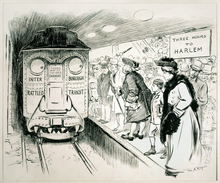“Punting the Pundits” is an Open Thread. It is a selection of editorials and opinions from around the news medium and the internet blogs. The intent is to provide a forum for your reactions and opinions, not just to the opinions presented, but to what ever you find important.
Thanks to ek hornbeck, click on the link and you can access all the past “Punting the Pundits”.
Wednesday is Ladies’ Day.
Katrina vanden Heuvel: The Republicans’ war on science and reason
Last month, Washington Post columnist Steve Pearlstein wrote that if you wanted to come up with a bumper sticker that defined the Republican Party’s platform it would be this: “Repeal the 20th century. Vote GOP.” With their unrelenting attempts to slash Social Security, end Medicare and Medicaid and destroy the social safety net, Republicans are, indeed, on a quest of reversal. But they have set their sights on an even bolder course than Pearlstein acknowledges in his column: It’s not just the 20th century they have targeted for repeal; it’s the 18th and 19th too.
The 18th century was defined, in many ways, by the Enlightenment, a philosophical movement based on the idea that reason, rational discourse and the advancement of knowledge, were the critical pillars of modern life. The leaders of the movement inspired the thinking of Charles Darwin, Thomas Jefferson and Ben Franklin; its tenets can be found in the Declaration of Independence and the U.S. Constitution. But more than 200 years later, those basic tenets – the very notion that facts and evidence matter – are being rejected, wholesale, by the 21st-century Republican Party.
Amy Goodman: Globalizing Dissent, From Tahrir Square to Liberty Plaza
The winds of change are blowing across the globe. What triggers such change, and when it will strike, is something that no one can predict.
Last Jan. 18, a courageous young woman in Egypt took a dangerous step. Asmaa Mahfouz was 25 years old, part of the April 6 Youth Movement, with thousands of young people engaging online in debate on the future of their country. They formed in 2008 to demonstrate solidarity with workers in the industrial city of Mahalla, Egypt. Then, in December 2010, a young man in Tunisia, Mohamed Bouazizi, set himself on fire to protest the frustration of a generation. His death sparked the uprising in Tunisia that toppled the long-reigning dictator, President Zine el-Abidine Ben Ali.
[]
Nine months later, Asmaa Mahfouz was giving a teach-in at Occupy Wall Street. Standing on steps above the crowd Monday night, she had a huge smile on her face as she looked out on a sea of faces. After she finished, I asked her what gave her strength. She answered with characteristic humility, speaking English: “I can’t believe it when I saw a million people join in the Tahrir Square. I’m not more brave, because I saw my colleagues, Egyptian, were going towards the policemen, when they just pushing us, and they died for all of us. So they are the one who are really brave and really strong. … I saw people, really, died in front of me, because they were protecting me and protecting others. So, they were the most brave, bravest men.”
Anu Kumar:
How HR 358, the Let Women Die Act 2011, Violates International Human Rights Standards
In a hospital in Nicaragua, after a total ban on abortion was passed, a woman with an ectopic pregnancy was allowed to languish, waiting for her fallopian tube to rupture before a doctor agreed to perform the procedure necessary to save her life and future fertility. Even though there was no doubt regarding the outcome of her pregnancy, the doctor refused to operate until the fetus was certifiably dead, and with no ultrasound available in that rural hospital, there was only one way to make sure.
This is the world that Rep. Joe Pitts (R-PA) would like to bring to America with the passage of H.R. 358, the so-called “Protect Life Act,” a bill that would deny pregnant women access to emergency treatment, insurance coverage for abortion services and even information about how she could pay for an abortion. It’s bad enough that one member of Congress would be willing to put women’s lives at risk this way; that a majority of the House of Representatives voted for it is appalling.
While in the United States we may treat abortion restrictions as a political issue, elsewhere around the world, advocates and experts understand such restrictions to be public health and human rights issues. And in the United States this year, we have seen law after law passed that clearly violates international human rights standards.
Medea Benjamin and Charles Davis: The Only ‘Success’ in Iraq is that U.S. Troops Are Leaving
Contrary to what you’re likely to hear from the political and media establishment, the only thing worth celebrating is this war’s end, not what it accomplished.
The U.S. occupation of Iraq is reportedly set to come to an end, with most of the roughly 40,000 soldiers currently stationed there set to be removed by year’s end. But let’s make no mistake: contrary to what you’re likely to hear from the political and media establishment, the only thing worth celebrating is this war’s end, not what it accomplished.
On October 21, President Obama announced that, “After nearly nine years, America’s war in Iraq will be over.” By the end of 2011, he said, “The last American soldier will cross the border out of Iraq with their head held high, proud over their success, and knowing that the American people stand united in our support for our troops.”
While the words may be intended to soothe – no one likes to know they have fought for an ignoble cause – the truth of the matter is that there is no “success” for any American to be gloating over. And though the president and his surrogates are selling the announcement as the fulfillment of an oft-repeated promise made on the campaign trail, the fact is it’s a promise the Obama administration made every effort to break.
Linda McQuaig: How to Make Inequality Obsolete
Only a couple of centuries ago, owning another person – slavery, that is – was considered a normal thing to do.
But, starting in the late 18th century, slavery was abolished throughout Europe and the Americas (in 1793 in Upper Canada) after the rise of an abolition movement based on Enlightenment ideas about human rights and freedoms.
Once considered acceptable, slavery came to be seen as repugnant. As U.S. political scientist John Mueller puts it: “Slavery became controversial, then peculiar and then obsolete.”
The power of social movements to sweep away ideas solidly embraced by the established order seems to be intuitively grasped by the Occupy Wall Street crowd, even if it’s lost on commentators who dismiss the movement as leaderless, unfocused and short on perfect sound bites.
Already, the occupiers have made an economic system that has dominated for the past 30 years – based on unbridled greed at the top and indifference to the well-being of the bottom 99 per cent – suddenly the focus of attention.
Anne Landman: “Horror Hotel”: The New Frontier of Junk Food Marketing to Kids
Today’s teenagers are probably the most savvy generation yet when it comes to filtering out advertising, but that is no worry for junk food and drink companies who steadily deploy stealthier and more sophisticated interactive promotions that specifically target teens and exploit their emotional and developmental vulnerabilities. The newest generation of internet-based junk food promotions uses cutting edge marketing techniques with names like “augmented reality,” “virtual environments” and “neuromarketing” — the use of scientifically-devised digital marketing techniques that trigger teens’ subconscious emotional arousal.
While few were looking, PepsiCo subsidiary Doritos quietly shifted its target audience from parents to teens. The chip maker now offers a teen-targeted website, “Doritos Late Night Augmented Reality,” that gives kids the ability to design a concert experience with a popular band just for themselves. The site lets teens control and manipulate the stage, camera angles and lighting, for example.
But that’s just the tip of the iceberg.

 Welcome to the Stars Hollow Health and Fitness weekly diary. It will publish on Saturday afternoon and be open for discussion about health related issues including diet, exercise, health and health care issues, as well as, tips on what you can do when there is a medical emergency. Also an opportunity to share and exchange your favorite healthy recipes.
Welcome to the Stars Hollow Health and Fitness weekly diary. It will publish on Saturday afternoon and be open for discussion about health related issues including diet, exercise, health and health care issues, as well as, tips on what you can do when there is a medical emergency. Also an opportunity to share and exchange your favorite healthy recipes. 
 While London boasts the world’s oldest underground train network (opened in 1863) and Boston built the first subway in the United States in 1897, the New York City subway soon became the largest American system. The first line, operated by the Interborough Rapid Transit Company (IRT), traveled 9.1 miles through 28 stations. Running from City Hall in lower Manhattan to Grand Central Terminal in midtown, and then heading west along 42nd Street to Times Square, the line finished by zipping north, all the way to 145th Street and Broadway in Harlem. On opening day, Mayor McClellan so enjoyed his stint as engineer that he stayed at the controls all the way from City Hall to 103rd Street.
While London boasts the world’s oldest underground train network (opened in 1863) and Boston built the first subway in the United States in 1897, the New York City subway soon became the largest American system. The first line, operated by the Interborough Rapid Transit Company (IRT), traveled 9.1 miles through 28 stations. Running from City Hall in lower Manhattan to Grand Central Terminal in midtown, and then heading west along 42nd Street to Times Square, the line finished by zipping north, all the way to 145th Street and Broadway in Harlem. On opening day, Mayor McClellan so enjoyed his stint as engineer that he stayed at the controls all the way from City Hall to 103rd Street.
Recent Comments